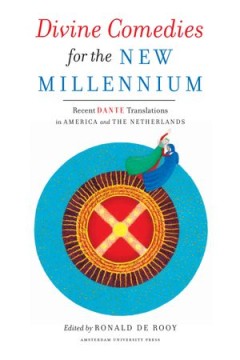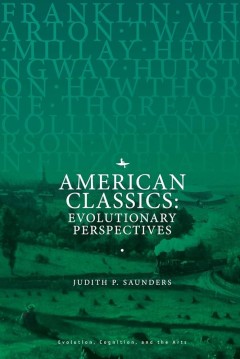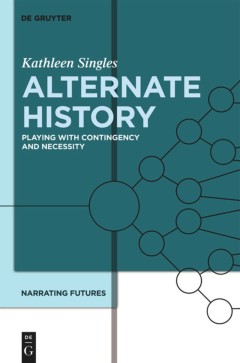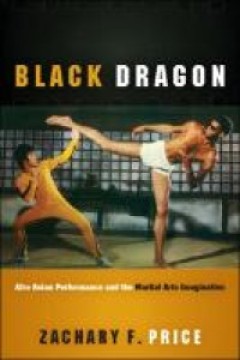Filter by

Adulterous Nations : Family Politics and National Anxiety in the European Novel
In Adulterous Nations, Tatiana Kuzmic enlarges our perspective on the nineteenth-century novel of adultery and how it often served as a metaphor for relationships between the imperial and the colonized. In the context of the long-standing practice of gendering nations as female, the novels discusse—Eliot's Middlemarch, Fontane's Effi Briest, and Tolstoy's Anna Karenina, along with Enoa's The …
- Edition
- -
- ISBN/ISSN
- 9780810133983
- Collation
- -
- Series Title
- -
- Call Number
- 800 KUZ a

Divine Comedies for the New Millennium : Recent Dante Translations in America…
Dante's intranslatability paradoxically causes a steady flux of translations, overwhelming in America, much more modest in the Netherlands. However, the tiny Netherlands witnessed a remarkable boom of Dante translations around the year 2000: within a short period seven cantiche were translated by Dutchmen and seven by Americans. This historic moment gave rise to a seminar about these recent tra…
- Edition
- -
- ISBN/ISSN
- 9789053566329
- Collation
- -
- Series Title
- -
- Call Number
- 800 DIV

World Literatures : Exploring the Cosmopolitan-Vernacular Exchange
"Placing itself within the burgeoning field of world literary studies, the organising principle of this book is that of an open-ended dynamic, namely the cosmopolitan-vernacular exchange. As an adaptable comparative fulcrum for literary studies, the notion of the cosmopolitan-vernacular exchange accommodates also highly localised literatures. In this way, it redresses what has repeatedly been i…
- Edition
- -
- ISBN/ISSN
- 9789176350768
- Collation
- -
- Series Title
- -
- Call Number
- 800 HEL w

Borges, Desire, and Sex
The Argentine Jorge Luis Borges, one of the most sophisticated writers of the twentieth century, suffered from sexual impotence. This emotionally overwhelming condition shaped his literary experience in ways that have not been understood. Until now Borges has largely been considered an asexual author who could not read, think, or write about desire and sex, but in this book historian Ariel de l…
- Edition
- -
- ISBN/ISSN
- 9781786941503
- Collation
- -
- Series Title
- Liverpool Latin American Studies
- Call Number
- 800 FUE b

Bourdieu and Literature
One of the foremost French intellectuals of the post-war era, Bourdieu has become a standard point of reference in the fields of anthropology, linguistics, art history, cultural studies, politics, and sociology, but his longstanding interest in literature has often been overlooked. This study explores the impact of literature on Bourdieu's intellectual itinerary, and how his literary understand…
- Edition
- -
- ISBN/ISSN
- 9781906924447
- Collation
- 203 halaman
- Series Title
- -
- Call Number
- 800 SPE b

American Classics : Evolutionary Perspectives
This collection of essays offers evolutionary psychological analysis of selected works from the American literary tradition. Application of evolutionary theory to writing by Ben Franklin, Nathaniel Hawthorne, Mark Twain, Walt Whitman, Edith Wharton, F. Scot Fitzgerald, Zora Neal Hurston, and others creates an interdisciplinary framework for examining key textual features: plot, theme, tone, set…
- Edition
- -
- ISBN/ISSN
- 9781618117656
- Collation
- -
- Series Title
- Evolution, Cognition, and the Arts
- Call Number
- 800 SAU a

Darwin, Tennyson and Their Readers : Explorations in Victorian Literature and…
‘Darwin, Tennyson and Their Readers: Explorations in Victorian Literature and Science' is an edited collection of essays from leading authorities in the field of Victorian literature and science, including Gillian Beer and George Levine. Darwin, Tennyson, Huxley, Ruskin, Richard Owen, Meredith, Wilde and other major writers are discussed, as established scholars in this area explore the i…
- Edition
- -
- ISBN/ISSN
- 9780857280763
- Collation
- -
- Series Title
- -
- Call Number
- 800 DAR

Alternate History : Playing With Contingency and Necessity
While, strictly speaking, Alternate Histories are not Future Narratives, their analysis can shed a clear light on why Future Narratives are so different from past narratives. Trying to have it both ways, most Alternate Histories subscribe to a conflicting set of beliefs concerning determinism and freedom of choice, contingency and necessity. For the very first time, Alternate Histories are here…
- Edition
- -
- ISBN/ISSN
- 9783110272475
- Collation
- -
- Series Title
- -
- Call Number
- 302.2 SIN a

Bluestocking Feminism and British-German Cultural Transfer, 1750-1837
Bluestocking Feminism and British-German Cultural Transfer, 1750–1837 examines the processes of cultural transfer between Britain and Germany during the Personal Union, the period from 1714 to 1837 when the kings of England were simultaneously Electors of Hanover. While scholars have generally focused on the political and diplomatic implications of the Personal Union, Alessa Johns offers…
- Edition
- -
- ISBN/ISSN
- 9780472119387
- Collation
- -
- Series Title
- -
- Call Number
- 306 JOH b

Black Dragon : Afro Asian Performance and the Martial Arts Imagination
In Black Dragon, Zachary F. Price illuminates martial arts as a site of knowledge exchange between Black, Asian, and Asian American people and cultures to offer new insights into the relationships among these groups. Drawing on case studies that include Kareem Abdul-Jabbar’s appearance in Bruce Lee’s film Game of Death, Ron Van Clief and the Black Panther Party for Self-Defense, the Wu-Tang…
- Edition
- -
- ISBN/ISSN
- 9780814214602
- Collation
- 240 halaman
- Series Title
- Black Performance and Cultural Criticism
- Call Number
- 700 PRI b
 Computer Science, Information & General Works
Computer Science, Information & General Works  Philosophy & Psychology
Philosophy & Psychology  Religion
Religion  Social Sciences
Social Sciences  Language
Language  Pure Science
Pure Science  Applied Sciences
Applied Sciences  Art & Recreation
Art & Recreation  Literature
Literature  History & Geography
History & Geography